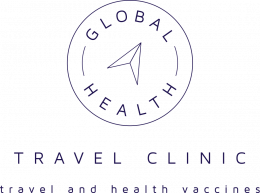TravelHealthPro is a website comprising the travel health resources of the National Travel Health Network and Centre (NaTHNaC).
https://travelhealthpro.org.uk/index.php
NaTHNaC was set up by the Department of Health in 2002 with the broad aim of Protecting the Health of British Travellers.
The following is an extract from https://travelhealthpro.org.uk/news/499/covid-19-general-advice-for-travellers
TravelHealthPro is a go to source of information for both the public and travel health professionals alike. Note some information may vary for residents in Scotland. In which case another source of information is Fit for travel https://www.fitfortravel.nhs.uk/home.
Information within Travel Health Pro covers a wide range of travel health subjects.
You will the article above covers a wide range of covid related subjects from travel disruption to FCDO guidance to prescription medicine supply to air quality on planes and much more. Read on and we encourage you to access the full details within the link given.
Restarting international leisure travel while maintaining border health checks means waiting times at border control are likely to be longer. Travellers arriving in England from any destination still need to fill out a passenger locator form and show proof of a negative pre-departure COVID-19 test result.
Travel disruption is occurring worldwide as national control measures such as border closures, movement restrictions or quarantine rules are introduced with limited notice. Travellers should be prepared to stay overseas longer than planned.
People at higher risk from COVID-19 particularly those who are clinically extremely vulnerable [4], are at greater risk of severe illness and should continue to be vigilant regarding social distancing and hand washing. Those who are in this group should check the advice in the UK nation they live in: England, Scotland, Wales or Northern Ireland.
The UK government has published a guide: Travel abroad: step by step; this explains all the requirements to help UK residents plan safe international travel and the passenger COVID charter; this gives information and guidance on your rights, responsibilities and reasonable expectations regarding international travel whilst COVID-19 measures remain in place.
The Foreign, Commonwealth & Development Office (FCDO) provides guidance on COVID and non-COVID risks overseas. Check FCDO travel advice for your destination (see summary, health and entry requirements sections) and their general travel guidance regularly, as information may change. It is possible to subscribe to email updates for your destination also.
Check entry restrictions, screening or quarantine requirements on arrival that might affect you. Contact the UK-based embassy of the country you are travelling to if you need more information. Be aware that there may be enhanced screening/monitoring at entry and exit ports. In some countries, borders may close or you may be required to self-isolate for a set period, even if you do not have symptoms.
Check the impact COVID-19 may have on your travel insurance coverage, including medical repatriation costs in case of ill health or any new restrictions on travel. If you are required to quarantine or self-isolate, you should expect to do so in the country you are in. Your travel insurance may be compromised if you extend your trip abroad or if you have travelled abroad against UK Government advice. The Association of British Insurers (ABI) has produced information on travel insurance implications following the outbreak.
Plan ahead for any possible delays to your return home and the financial implications or practical arrangements you may need to make.
Ensure you have extra supplies of any medication or medical equipment you need. Remember to carry copies of prescriptions and carry medication in your hand luggage.
Face coverings are now required when travelling on public transport in the UK and may be required in other countries. Face coverings do not replace social distancing and hygiene measures; you still need to take all the other recommended precautions.
Know in advance the entry requirements for your return to the UK: read and follow the guidance on entering the UK.
COVID-19 vaccines are currently in use in the UK. The NHS will contact individuals to let them know when it is their turn to have the vaccine.
You cannot use the NHS test and trace service to get a test for international travel purposes.
Testing before you leave the UK for international travel is only available as a private service with private providers e.g. some private GP services, travel clinics or other private testing services. If you are travelling for work purposes, you should discuss options for testing with your employer.
You should ensure that testing is carried out by a laboratory accredited by the United Kingdom Accredited Service (UKAS).
All international arrivals into England are required to present a negative COVID-19 test taken up to 72 hours before departure. Further details, including the information that the test must include and those travellers exempt from testing, may be found here: UK Coronavirus (COVID-19) testing for people travelling to England.
Air quality on board aircraft is carefully controlled, changed very frequently and passed through filters efficient at removing viruses. Research has shown that there is little risk of any communicable disease being transmitted on board an aircraft [8]. IATA research published October 2020 indicates that so far, only a small number of cases (44) have been associated with a flight journey (inclusive of confirmed, probable and potential cases) during which time 1.2 billion passengers travelled [9]. However, there is definitive evidence of in-flight transmission of COVID-19 [10], the addition of mask-wearing on a flight appears to add an extra layer of protection [11].
Continue to take good hygiene measures (see below) and use the designated toilet for your area of the aircraft, washing your hands before you leave the toilet.
Avoid moving from your seat unnecessarily but do continue to exercise your legs (flex and extend the ankles) as much as possible to encourage blood flow from the lower legs.
Avoid touching your eyes, nose, and mouth with unwashed hands.
Avoid close contact with people who are sick.
If you feel unwell, stay at home, do not travel or attend work/school.
Cover your cough or sneeze with a tissue, then throw the tissue in a bin and wash hands with soap and water.
Clean and disinfect frequently touched objects and surfaces in the home and work environment.

